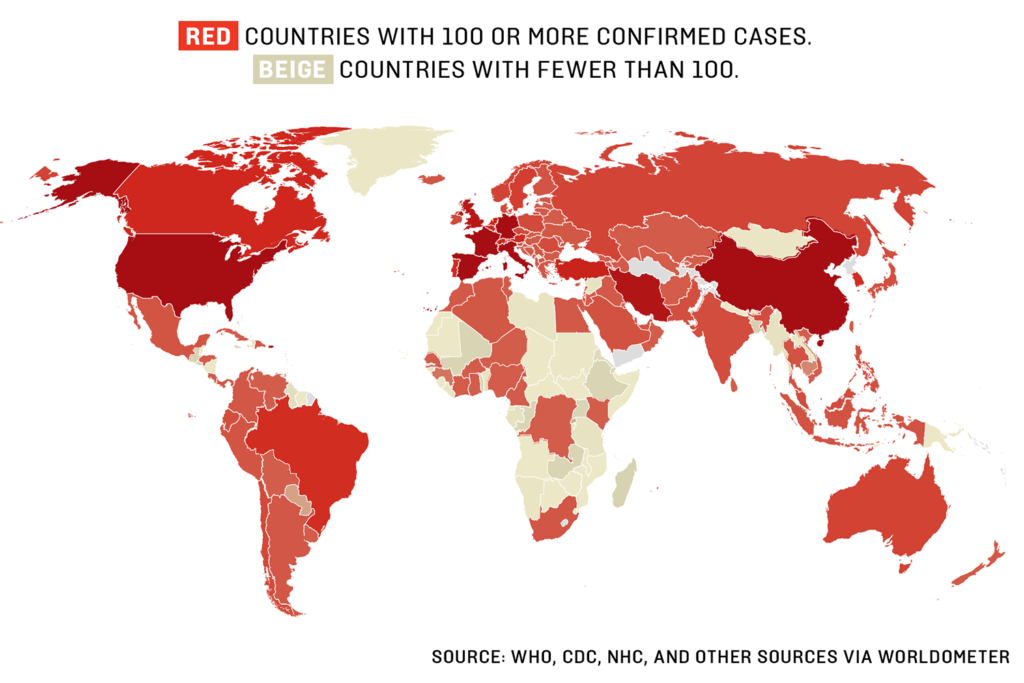Google has published charts that show how the Coronavirus hit Italy and made life stagnant there.

Google users’ phone location data analysis is by far the largest available public data aimed at helping authorities assess whether people are confined to homes and follow other virus protection measures.
The company released a report on shopping and leisure activities, trains and buses, home goods shops and workplace traffic, including charts, from 5 February to March 29 in 131 countries.
Google says it publishes the report to avoid concerns about what content is being provided to authorities, but it needs to balance privacy with the need to prevent future outbreaks concerning location tracking. Global discussions have begun.
The Situation around the world

Italy and Spain, two of the countries most affected by the virus, have seen a 94% drop in the number of people visiting shops and leisure venues such as restaurants and cinemas in both countries.
On the other hand, the decline was 80% in the UK, France, and the Philippines. Social distance measures in the United States and Australia saw a 50% drop in people arrivals at such locations.
Read More: Fear of spreading Coronavirus, people set fire to the 5G towers
In contrast, Sweden and Japan, where authorities did not impose strict sanctions, reduced arrivals to shops and leisure by only a quarter.
Similarly, South Korea, which successfully overcomes the outbreak by aggressively testing and detecting virus contacts, saw only 19 percent of the decline. The data also describes the challenges that the authorities are facing to keep the public afloat.

On the other hand, there has been an increase in the influx of people to domestic goods stores in Singapore, the UK and other places where travel is now banned.
Meanwhile, parks in some counties in the San Francisco Bay Area during the lockdown in California saw an influx of people.
Private life balance
The data included in the Google report was obtained with the help of Google’s ‘Location History’ feature on mobile phones. The company said it took technical measures to ensure that no person was identified with the reports.
Google’s movement data is probably more reliable than third-party location data.
However, looking at their Austria report, I can’t believe visits to ‘retail & recreation’ places have decreased only 87%. All those places are closed, staff is mostly absent.https://t.co/Dc1BsL5ey0 pic.twitter.com/7uOB3mTLP5
— Wolfie Christl (@WolfieChristl) April 3, 2020
“The report is designed to be helpful in keeping with privacy protocols and policies,” said Google Chief Health Officer Dr. Karen de Salvo.
Infectious disease experts say analyzing travel, income and other data for people of different ages helps make announcements to the public.







